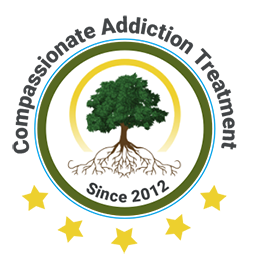
What is Kratom?
Kratom, scientifically known as Mitragyna speciosa, is a tropical tree native to Southeast Asia. Traditionally used for pain relief and mood enhancement, kratom’s leaves contain compounds that can produce opioid-like effects when taken in high doses. While many initially turn to kratom for its natural benefits, its potent properties can lead to physical dependence, tolerance, and eventual addiction.
At high doses, it can have an opioid-like effect, and can also have a similar sedative and pain-killing effect. The Kratom “high” can last anywhere from a few minutes to a few hours. It can have side effects similar to opioids and may lead to dependence and addiction.
Kratom is often found in powder, capsule, or drink form. It is marketed and sold as a diet supplement and is often found in convenience stores, head shops, and music stores. It is considered by some as a legal way of “getting high”. Others use Kratom to beat drug tests, as it is not generally tested for. Kratom is relatively new to the market. While its effects are not fully understood, Kratom is believed to have potentially harmful side effects and can lead to dependence and addiction.
Is Kratom Safe?
Despite being a natural substance, kratom is not without risks. Many people mistakenly believe that “natural” means completely safe. However, prolonged use of kratom can lead to:
- Potential Risks & Side Effects:
Nausea, dizziness, confusion, and agitation are common side effects. Over time, consistent use may lead to physical dependence or outright addiction. - Impact on Daily Life:
As dependency develops, you might notice a loss of control over your usage, strained relationships, financial difficulties, and other health complications that disrupt daily routines.
Is Kratom Addictive? YES
Kratom is thought to act similarly to opioid drugs on the brain. Thus, the use of Kratom can have many of the same neurobiological consequences, including addiction. Kratom use can dysregulate the pleasure center of the brain. Use, misuse, or abuse of Kratom can lead to dependence or addiction. Some will use Kratom to ease withdrawals from heroin and other opiates but often find the withdrawal symptoms to be similar, including intense cravings, nausea, fatigue, sleep disruption, muscle and bone pain, etc. As with other substances, Kratom may cause anhedonia (difficulty experiencing pleasure naturally), leading to continued use and abuse.
Signs & Symptoms of Kratom Addiction
Recognizing the signs of kratom addiction is the first step toward recovery. Watch for these physical and behavioral indicators:
- Physical Indicators:
- Experiencing withdrawal symptoms such as headaches, muscle aches, and mood swings
- Needing increasing amounts of kratom to achieve the same effect
- Emotional & Behavioral Changes:
- Feelings of shame, guilt, or secrecy regarding your kratom use
- Neglecting responsibilities at home, work, or school as usage becomes more central to your life
Kratom Withdrawal: What You Need to Know
Withdrawal from kratom can be challenging, but understanding the process helps prepare you for a safe recovery journey.
Common Withdrawal Symptoms
When discontinuing kratom, many experience:
- Anxiety, irritability, and restlessness
- Physical discomfort, fatigue, and intense cravings
These symptoms can mirror mild opioid-like withdrawal and underscore the importance of a professionally guided approach.
How to Taper Off Kratom
For those wondering, “How do I taper off kratom extract?”, it’s essential to work with professionals. At Renaissance Recovery Center, we emphasize a gradual reduction approach paired with comprehensive outpatient support and tele-therapy. Although we do not offer inpatient detox services, our personalized programs ensure you receive the help needed to manage cravings safely and effectively.
Treatment Options for Kratom Dependence
At Renaissance Recovery Center, our treatment options are designed to fit your life and promote long-term recovery.
Outpatient Programs at Renaissance Recovery Center
Our flexible scheduling allows you to continue work, school, or family commitments while undergoing treatment. Each treatment plan is individualized, ensuring that your unique mental health challenges and kratom dependence are addressed comprehensively.
Evidence-Based Therapies
- Cognitive Behavioral Therapy (CBT):
Learn strategies to manage cravings and develop healthier coping mechanisms. - Group Therapy & Family Support:
Engage in a supportive community that understands the struggles of addiction while addressing shame, guilt, and the fear of judgment. - Tele-Therapy:
Access professional guidance from the comfort and privacy of your home.
Medications & Support for Withdrawal
Some individuals may benefit from physician-monitored medication to ease withdrawal symptoms. While our primary focus is on outpatient therapy and comprehensive care, any necessary medication is carefully supervised as part of your personalized recovery plan.
What to Expect from Treatment
Understanding your treatment journey can ease many of the fears surrounding recovery.
Assessment & Personalized Plan
Your journey begins with an in-depth evaluation that considers both your kratom use and any underlying mental health conditions. This holistic approach ensures we treat the whole person, not just the addiction.
Ongoing Support & Aftercare
After your initial treatment phase, our care continues through regular follow-up sessions, group meetings, and tele-therapy check-ins. We focus on relapse prevention strategies to help you maintain a lasting recovery.
Getting Help and Treatment for Kratom Addiction
Depending upon the individual, treatment for Kratom use may begin with detox. In some instances, medical detox may be necessary, depending upon the intensity of the withdrawal process.
Oftentimes, as with other forms of substance use, there are underlying issues. In many cases, treatment is necessary to help those suffering from addiction to address the negative emotional, psychological, spiritual, and social effects of substance use.
A significant number of addicts suffer with dual-diagnosis conditions; such as depression, anxiety, bipolar disorder, borderline personality, etc. Others are challenged with trauma, abuse, grief, and loss. If these issues are not adequately addressed, it can be difficult, or even impossible, for the individual to achieve the quality of life necessary for sobriety.
Families are also affected by substance use. When possible and appropriate, it is important to provide support and healing for the family system. The support and healing of family members is a significant factor in positive recovery outcomes.
There are many treatment options when needed, such as residential, inpatient, day treatment, or outpatient resources. A rehab experience should provide the support and structure necessary as those struggling with substance use disorder develop the tools and skills necessary for sobriety.12 step, cognitive-behavioral, SMART recovery, and other models are useful in the recovery process. A program should comprehensively provide the resources to deal with mind, body, and spirit.
Frequently Asked Questions About Kratom
Yes, many individuals seek rehab specifically for kratom addiction. However, unlike traditional inpatient detox programs, most people benefit from outpatient rehab options that allow them to continue with their daily responsibilities while receiving treatment. At Renaissance Recovery Center, our outpatient programs are designed to address kratom addiction through flexible, personalized care that supports both recovery and everyday life.
There is no single “antidote” for kratom, as its effects are managed through a comprehensive treatment plan rather than a one-time solution. Professional care—such as the outpatient programs at Renaissance Recovery Center—focuses on mitigating withdrawal symptoms, supporting detoxification through behavioral therapies, and promoting long-term recovery strategies to help manage kratom dependence effectively.
Effective treatment for kratom abuse involves a comprehensive outpatient program that combines evidence-based therapies such as Cognitive Behavioral Therapy (CBT), group counseling, and tele-therapy. At Renaissance Recovery Center, we create personalized recovery plans that address both the addiction and any underlying mental health issues. This holistic approach ensures that you receive the support you need 24/7 while working toward long-term recovery.
While you cannot completely “reverse” the physical effects of kratom withdrawal overnight, proper treatment can significantly reduce symptoms and promote recovery. Through a tailored outpatient program that includes gradual tapering, supportive counseling, and relapse prevention strategies, you can manage withdrawal symptoms effectively and restore overall well-being over time.
At Renaissance Recovery Center, your treatment begins with a thorough assessment to evaluate your kratom use and any related challenges. You can expect a personalized plan that incorporates individual therapy, group support, and tele-therapy sessions. Our approach focuses on managing withdrawal symptoms, addressing underlying issues, and providing continuous support through follow-up care and relapse prevention strategies—all designed to fit into your daily life.
Tapering off kratom extract safely requires professional guidance and a gradual reduction in dosage. Our outpatient program at Renaissance Recovery Center employs a carefully monitored tapering schedule, combined with behavioral therapies, to help manage cravings and minimize withdrawal symptoms. This controlled approach ensures that you transition smoothly away from dependency while maintaining stability throughout your recovery process.
In some cases, medications may be prescribed to help manage the symptoms associated with kratom withdrawal. While our primary focus is on outpatient therapy and behavioral support, our medical team may recommend medications on a case-by-case basis to alleviate symptoms such as anxiety, restlessness, or severe cravings. All medication usage is carefully supervised to ensure safe and effective withdrawal management.
Research is underway to learn how kratom affects people physically, including its potential impacts on long-term health. Effects appear to be widely varying between users, depending on the potency, amount used, method of ingestion, user’s medical condition, and other factors.
Some users have reported effects like those from a stimulant, and others report effects like those from opioids or sedatives. Studies have not yet confirmed those reported effects based on dosages. Adverse effects appear to range from mild to severe, including degrees of nausea, dizziness, constipation, and drowsiness. There are rare reports of severe effects, such as neurological and physical symptoms, including tremors, seizures, and heart, lung, gastrointestinal, and liver problems.
Kratom has been used in Southeast Asia for hundreds of years for its effects on both energy relaxation and increasing energy. The effects are described as similar to both opioids and stimulants, depending upon dosages. More recently, researchers have learned that kratom is also used to relieve pain, anxiety, and depression and relieve withdrawal symptoms and cravings to help people quit using opioids or other substances. The majority of users reportedly give multiple reasons for consuming kratom.
Research is underway to learn how kratom affects the body, including long-term health.
Studies so far indicate that using kratom in small doses produces effects like a stimulant characterized by increased alertness and energy. The data further indicate that using the drug in larger doses produces effects similar to those from opioids and sedative drugs, characterized by relief from pain, relaxation, and confusion.
Adverse effects of kratom use appear to range from mild to severe and can include:
- Dizziness, constipation, sleepiness
- Mental and neurological symptoms like confusion, seizures, and tremors
- Heart issues such as increased heart rate and blood pressure
- Lung issues, including slowed breathing
- Gastrointestinal problems like nausea and vomiting
- Liver problems
A “small number” of kratom-related deaths have occurred, almost all of which involved other drugs or a contaminated kratom product.
If you believe you are addicted to kratom, you should seek advice from your doctor or mental health professional about effective treatment. Kratom drug addiction treatment at Renaissance Recovery Center in Gilbert, Arizona, is available as an outpatient drug rehab option through one of 3 programs:
- Partial Hospitalization Program: (Day Treatment) offers a more involved level of care, including individual therapy, group therapy, and family therapy.
- Outpatient Program: (60 days) Group therapy Monday through Thursday
- Aftercare Program: (90 days) Alumni attend one-night session per week.
Why Choose Renaissance Recovery Center?
Expert Team & Empathetic Approach
Our licensed professionals have extensive experience in treating substance abuse, including kratom dependence. We understand the shame, guilt, and fear that often accompany addiction and are committed to providing compassionate care.
Flexible Outpatient Care in Gilbert, AZ
Located in Gilbert, Arizona, our center offers flexible outpatient services with 24/7 availability and free phone consultations, ensuring that help is always within reach.
Family Involvement & Community Support
We recognize the crucial role that family and community play in long-term recovery. Our holistic approach actively involves your loved ones, helping you build a robust support network for your journey to wellness.
Ready to Break Free from Kratom Dependence?
Contact Renaissance Recovery Center today at (480) 526-7738 or click the button below to learn more about our outpatient treatment programs. Our dedicated team is available 24/7 to answer your questions and guide you toward a renewed life.
You Don’t Have to Face Kratom Addiction Alone
Recovery is within reach, and it begins by taking that first courageous step. At Renaissance Recovery Center, our compassionate outpatient care is tailored to meet your unique needs. Let’s work together to overcome kratom dependence and reclaim your health, relationships, and future.
Center for Kratom Addiction Treatment in Gilbert, AZ
Kratom addiction treatment from Renaissance Recovery Center in Gilbert, Arizona offers each client a customized treatment plan designed to meet his or her individual needs. The Renaissance Recovery Center approach to Kratom addiction recovery is holistic; involving group and individual counseling, which addresses the spiritual, emotional and psychological aspects of recovery. Contact us at (480) 526-7738 for any questions or to get a free assessment.










